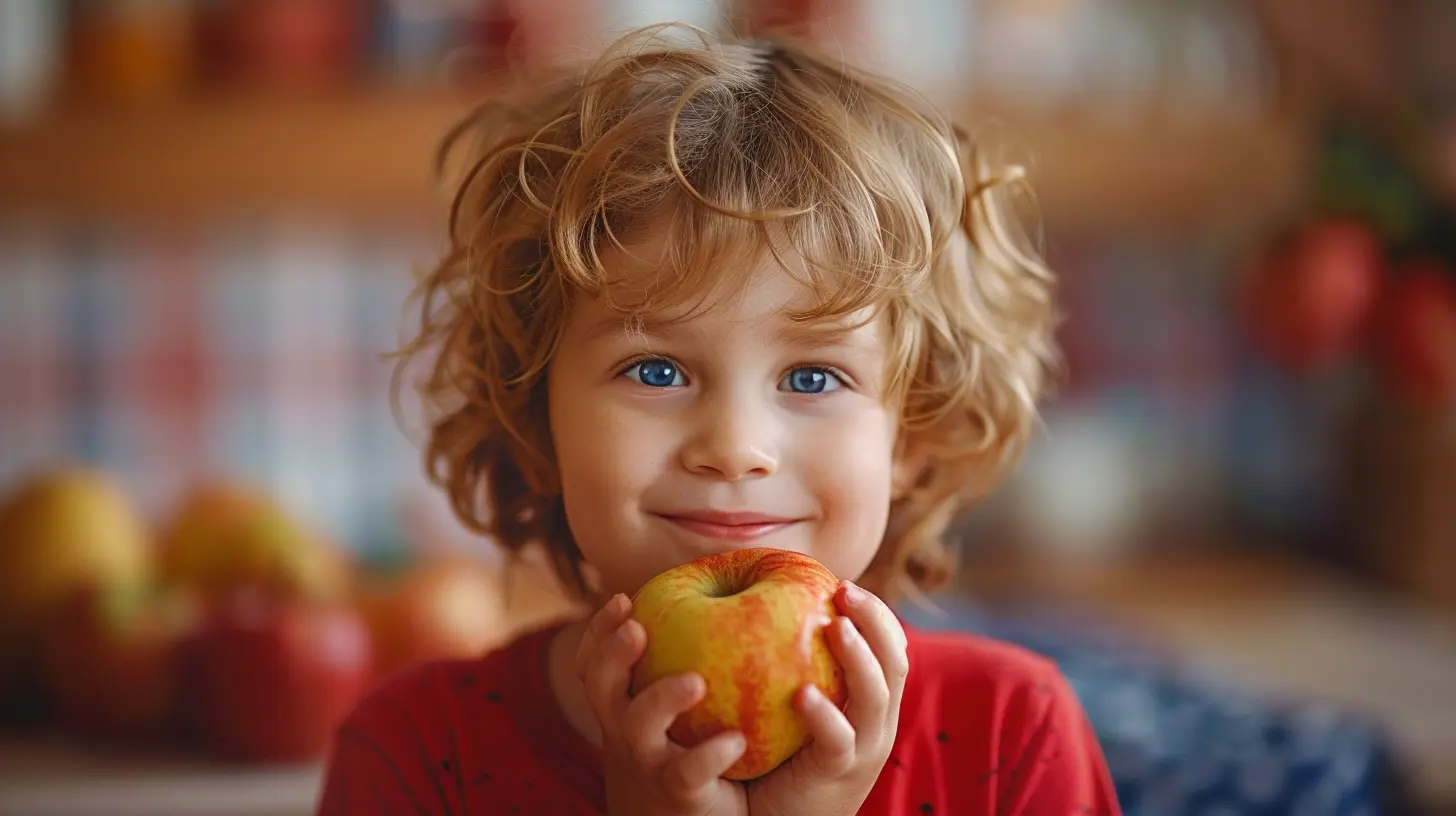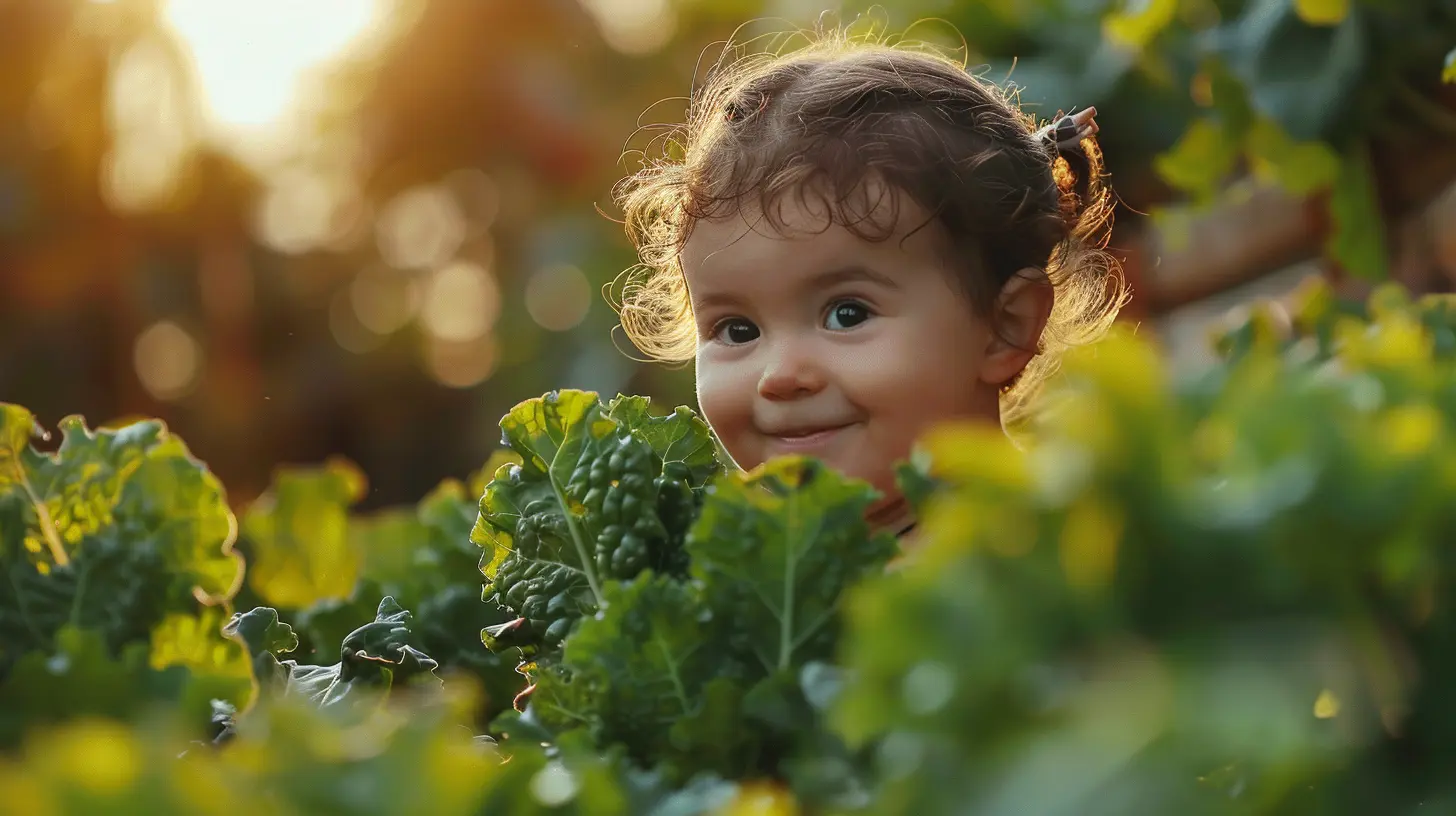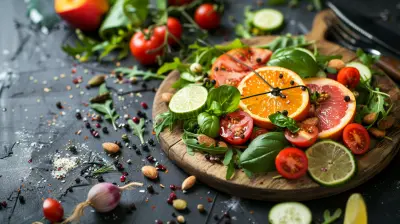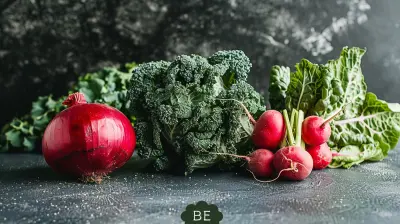10 December 2024
Let’s be honest: raising kids is a wild ride. Between school runs, playdates, and the never-ending "Can I have a snack?" moments, ensuring that your little ones are eating healthy can feel like an uphill battle. Enter organic foods—nature’s way of showing off. But why is it so important for growing bodies? Well, imagine your child as a sapling. You wouldn’t want to water it with soda, right? The same logic applies here. Organic foods are like premium fuel for your kids’ bodies, helping them grow strong and healthy. Intrigued? Keep reading as we dive into why organic foods are a no-brainer for your mini humans.
What Are Organic Foods, Anyway?
Let’s start with the basics. Organic foods are grown without the use of synthetic pesticides, fertilizers, genetically modified organisms (GMOs), or artificial additives. In simpler terms, organic foods are as close to nature as it gets. That apple in your kid’s lunchbox? If it’s organic, it comes without the side serving of chemicals.Plus, organic farming promotes better soil, cleaner water, and happier animals. Some might call it farming with a conscience. For parents, it’s like checking off another box titled "doing my best for my kids."
Why Organic Foods Matter for Growing Kids
1. Fewer Chemicals, More Clean Eating
Here’s the thing: kids are small. Their bodies are still developing, which makes them more vulnerable to the harmful effects of pesticides and additives found in non-organic foods. A non-organic apple might come with a side order of pesticide residues—yuck. Organic food, on the other hand, minimizes these risks. Think of it as giving your kids a clean slate to build their health upon.Do you ever wonder what all those chemicals in food do in the long term? It’s like peeling back the layers of an onion—you might not notice the effects immediately, but they accumulate. So why take the chance when organic food provides a safer alternative?
2. Better Nutrition—Because Every Bite Counts
Organic foods often pack a bigger nutritional punch than their non-organic counterparts. Studies have shown that organic fruits and veggies can have higher levels of certain vitamins, minerals, and antioxidants. Think of antioxidants as tiny superheroes fighting off bad guys (free radicals) in your child’s body.Feeding your kids organic produce is like upgrading their daily dose of health armor. And when it comes to milk, meat, and eggs? Organic options tend to have better omega-3 fatty acids—those healthy fats that help with brain development and boost mood. Pretty cool, huh?
3. Fewer Additives = Fewer Tantrums
Processed foods can be sneaky. They might look all bright and cheerful, but they’re often packed with artificial colors, flavors, and preservatives. Many of these additives have been linked to behavioral issues in kids, such as hyperactivity or mood swings.Ever noticed how your child seems to go from zero to tantrum after too much processed food? Coincidence? Maybe not. Organic foods cut out those unnecessary extras, keeping your child’s behavior more balanced and their moods more consistent (well, as much as they can be with kids).
4. Building Healthy Habits Early On
They say old habits die hard, so why not start the good ones early? Getting your kids used to organic foods means they’re more likely to choose cleaner options as they grow older. It’s like planting seeds for a lifetime of healthy choices.Imagine this: your kid grows up loving the natural sweetness of organic strawberries instead of candy. That’s a win not just for their health but also for your peace of mind.
Tips for Switching to Organic Foods Without Breaking the Bank
Let’s get real. Organic food often comes with a reputation for being pricey. But don’t let that scare you off! With a little planning and creativity, you can make the switch without blowing your grocery budget.1. Prioritize the "Dirty Dozen"
The Environmental Working Group (EWG) releases a yearly "Dirty Dozen" list, highlighting the fruits and veggies with the highest pesticide residues. Focus on buying these organic. For example, strawberries, spinach, apples, and grapes often top the list. On the flip side, the "Clean Fifteen" identifies produce that’s safer to buy conventionally.2. Buy in Season
Organic produce is cheaper when it’s in season. Shopping at local farmers’ markets can also help you snag great deals and support local growers. Plus, fresh, seasonal produce just tastes better.3. Start Small
Nobody said you have to go 100% organic overnight. Start with one or two changes, like switching to organic milk or eggs. Once you’ve got the hang of it, expand your list.4. Cook More, Process Less
Cooking meals from scratch not only saves money but also ensures you’re feeding your kids whole, nutritious meals. Skip the processed, pre-packaged "organic" options—they’re often more expensive and less healthy.
Debunking Common Myths About Organic Foods
There’s a lot of misinformation floating around about organic foods. Let’s clear up a few things, shall we?Myth #1: Organic Food Doesn’t Taste Better
Have you ever bitten into a fresh, organic tomato? It’s like tasting sunshine. Organic foods often taste better because they’re grown in richer soil and aren’t rushed to grow unnaturally fast.Myth #2: Organic Food Isn’t Really Healthier
Some skeptics argue there’s no "significant" difference. But when it comes to avoiding pesticides, harmful chemicals, and artificial additives? That’s a big win for health, especially for kids.Myth #3: Organic Food is Always Expensive
Yes, organic food can be more expensive. But with smart shopping strategies (like buying in season and prioritizing high-risk foods), it doesn’t have to break the bank.The Bigger Picture: Protecting the Planet for Future Generations
Choosing organic isn’t just about your child’s health today—it’s also about their future. Organic farming practices support biodiversity, reduce pollution, and conserve water. It’s a sustainable choice that ensures the planet they inherit is a little greener.Think of it this way: every organic apple you buy is like casting a vote for a healthier planet. That’s a legacy worth leaving, isn’t it?
Simple Organic Recipes Your Kids Will Love
Here are a couple of quick, kid-friendly organic meal ideas to get you started:Organic Banana Smoothie
- 1 organic banana- 1 cup organic milk or almond milk
- 1 tsp organic honey
- A handful of ice cubes
Blend everything together, and bam—a refreshing, nutritious snack.
DIY Organic Trail Mix
- Organic nuts (almonds, walnuts)- Organic dried fruits (raisins, cranberries)
- A pinch of organic dark chocolate chips
Mix them all up for a snack that’s perfect for lunchboxes or road trips.
In Conclusion: A Small Change with Big Benefits
Switching to organic foods for your kids isn’t just a trend—it’s a meaningful choice that helps their bodies grow healthy and strong. It’s about giving them the best start in life, free from unnecessary chemicals and additives. And while it may take a little extra effort (and maybe a few extra dollars), the benefits far outweigh the costs. After all, what’s more important than the health and happiness of your tiny humans?So, next time you’re at the grocery store, consider grabbing that organic apple or those pesticide-free carrots. Your kids—and the planet—will thank you.









Dorothy Bowers
Prioritizing organic foods for kids supports their growth and development by minimizing exposure to chemicals and enhancing nutrient intake for better health.
February 4, 2025 at 4:19 PM